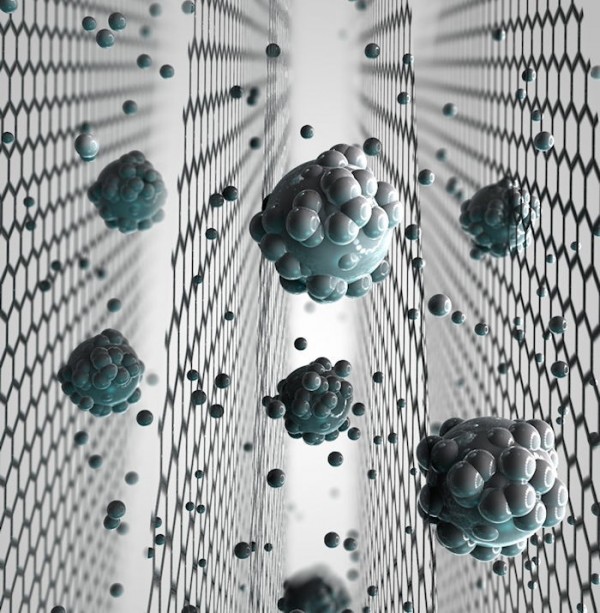By Ana Verayo, | April 08, 2017

Graphene oxide membranes can now be developed into effective water filtration systems.
In the most astonishing breakthrough, seawater can now be transformed into clean drinking water courtesy of graphene. Scientists have developed a graphene sieve that can filter common salts from water that can potentially save millions of people around the world who has limited access to clean water.
Like Us on Facebook
First developed by scientists in 2004, graphene is a new material that is one of the most durable and lightest ever created, measuring at a single atom in thickness and around 200 times stronger than steel. Apart from these, its unique properties also include flexibility and high conductivity for heat and electricity, which can become highly valuable for practical applications across many industries.
In this new study, a team from the University of Manchester has proven that graphene oxide membranes can also be an effective filtration system as these membranes can filter salts, organic particles and even nanoparticles. More specifically the team demonstrated how graphene oxide membranes can swell when exposed to water and ultimately block salt ions and molecules.
Apart from these, scientists have developed a new graphene sieve that can even stop the swelling of this membrane upon exposure to water, in order to control its pore size. This results in filtering commonly found salt in seawater, creating clean water safe enough to drink.
Researchers conclude how this simple, scalable method to obtain graphene based membranes with controlled swelling can reject 97 percent of sodium chloride. According to the United Nations, by the year 2025, 14 percent of the world's populations will encounter water shortage and scarcity. This means that technological developments like this graphene sieve will be crucial in sustaining communities and entire populations, with the help of efficient and cost effective salination and filtration systems.
The effects of climate change are already endangering the world's precious water supplies with increased occurrences of drought and extreme flooding, leading to water supply shortages. Researchers now suggest that the graphene sieve can be scaled up for industries where these membranes can be produced for on demand filtration especially for countries that cannot afford complex water filtration plants and systems.
This new study is published in the journal Nature Nanotechnology.
-
Use of Coronavirus Pandemic Drones Raises Privacy Concerns: Drones Spread Fear, Local Officials Say

-
Coronavirus Hampers The Delivery Of Lockheed Martin F-35 Stealth Fighters For 2020

-
Instagram Speeds Up Plans to Add Account Memorialization Feature Due to COVID-19 Deaths

-
NASA: Perseverance Plans to Bring 'Mars Rock' to Earth in 2031

-
600 Dead And 3,000 In The Hospital as Iranians Believed Drinking High-Concentrations of Alcohol Can Cure The Coronavirus

-
600 Dead And 3,000 In The Hospital as Iranians Believed Drinking High-Concentrations of Alcohol Can Cure The Coronavirus

-
COVID-19: Doctors, Nurses Use Virtual Reality to Learn New Skills in Treating Coronavirus Patients







